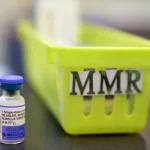

(The Center Square) – Mislabeling fake meat will carry a fine of up to $10,000 in Iowa starting July 1.
New regulations under Senate File 2391, which the governor signed into law in May, restrict misbranding food products as egg or meat. Violations will carry a fine of $500 to $10,000.
The regulations also allow regulatory authorities including the Attorney General or a county attorney to issue a stop order or embargo order where food product is being offered. Food processing plants or grocery stores with a “credible complaint” against them will be inspected by the Department of Inspections, Appeals, and Licensing, according to the bill.
Iowa is one of a few states that have been cracking down on alternative food products.
Both Florida and Alabama passed legislation this year banning lab-grown meat. Tennessee and Arizona have proposed similar bills, but they haven’t made it across the finish line.
The new law will prohibit Iowa educational institutions from buying misbranded meat products.
Sen. Dawn Driscoll, R-Iowa, who carried the bill in the Senate, called it a “meat integrity” bill.
“The intent of this bill was clear. We focused on the meat, and we voted for the transparent labeling for the consumers and to keep experimental lab-grown protein out of schools and the nutrition programs,” Driscoll said during a hearing.
The bill originally didn’t include eggs, but the House amended it to include the misbranding of egg products.
“While it was originally intended to focus this legislation on meat, I recognize the value and the production of eggs in Iowa,” said Driscoll.
Democrats pushed back against different aspects of the bill. Sen. Janet Peterson, D-Polk, called it “government interference with our schools.”
Sen. Herman Quirmbach, D-Story, took issue with the section concerning egg alternatives.
“Truth in labeling is certainly something that I believe in for consumer protection, but I’m also concerned with consumer nutrition and there are some people who can’t eat eggs because of allergies but would still need the nutritive content that might be supplied by alternative products. The other thing that is of great concern here is the price of eggs,” Quirmbach said.
Driscoll said the bill was about making sure food alternatives were labeled correctly.
Health and Human Services will be required to request a waiver to exclude the purchase of “cultivated protein food products and fabricated egg products” from eligibility under the federal nutrition program.





